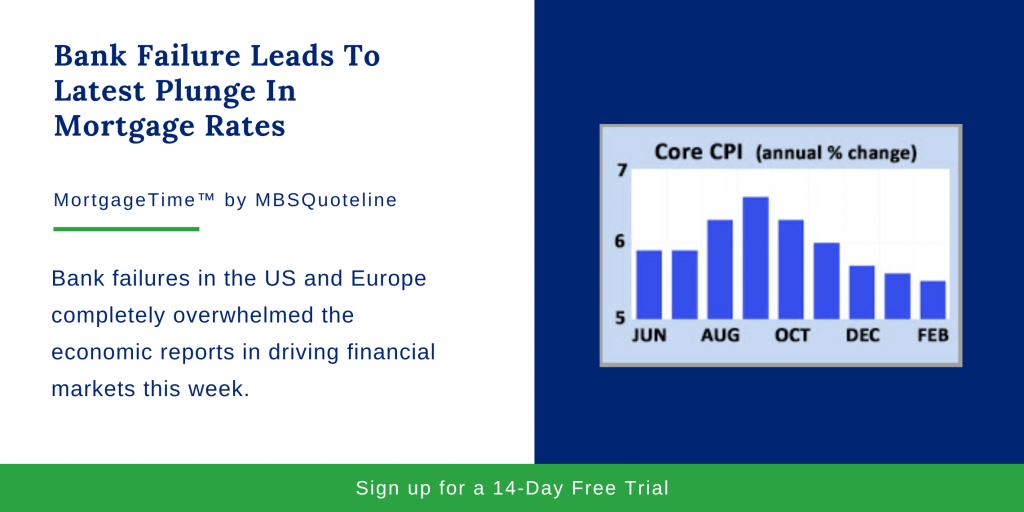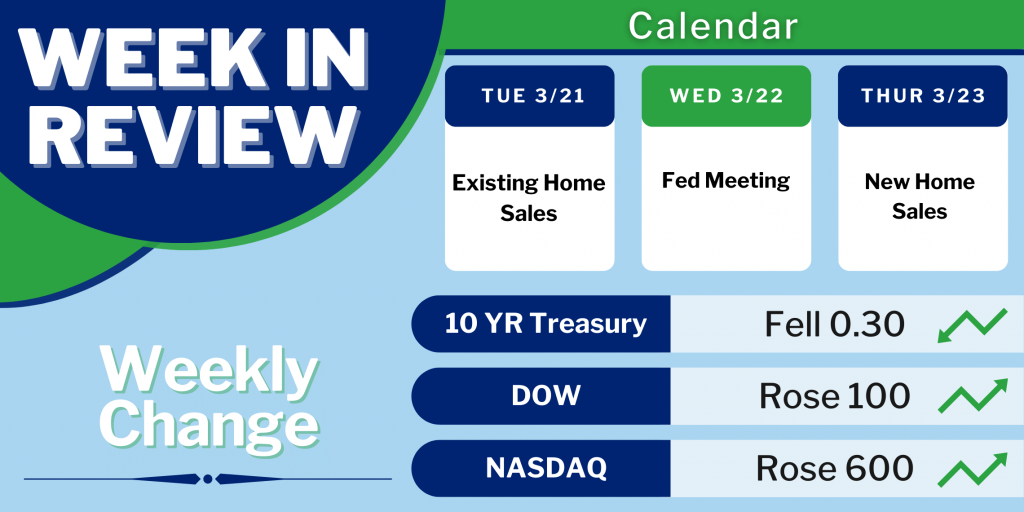Bank failures in the US and Europe completely overwhelmed the economic reports in driving financial markets this week. Investors shifted to safer assets, and mortgage rates moved lower.
Bank Failure Has Upside for Home Buyers
The US and Europe are dealing with the largest bank failure in the US since the financial crisis in 2008. While there are major implications for rising inflation, mortgage rates have seen a positive outcome. The bank failure developed mostly as a result of the rapid monetary policy tightening by the Fed to fight inflation. Now, investors are concerned to what degree other banks have similar problems. Furthermore, investors speculate that higher rates will cause cracks to emerge in other areas of the financial system.
Thus, the reaction to this increased uncertainty was to shift from risky stocks to relatively safer bonds, including mortgage-backed securities (MBS). Added demand for MBS causes mortgage rates to decline. Banks will tighten their lending standards, in theory. This will lead to it being more difficult for businesses to obtain loans. This would slow economic growth, reducing the outlook for future inflation, which is also good for mortgage markets.
European Central Bank Deals with US Bank Failure
On Thursday, the European Central Bank meeting previewed how the Fed will address banking failure in its next meeting. The ECB had indicated in prior meetings that they planned to raise rates by 50 basis points. Many investors anticipated that the bank failures would result in a smaller 25 basis point to lessen the impact.
However, the ECB did raise rates by 50 basis points. The ECB noted its roles for maintaining price stability and for ensuring the safety of the financial system. However, the ECB also stated it would provide liquidity to banks if needed, but stressed the need to fight inflation. With little reaction, the latest key inflation data came in close to what was expected. Core CPI in February was up 5.5% from a year ago, down from an annual rate of 5.6% last month. Shelter (housing) costs remained stubbornly high and again were responsible for the largest portion of the increase.
Retail Sales Fall in February 2023
Retail Sales report on Wednesday still received some attention, since consumer spending accounts for over two-thirds of US economic activity. After a massive surge of 3.0% in January caught investors off guard. Retail sales in February contained no major surprises, falling modestly from January as expected. In general, consumers spent more on necessities such as groceries, while cutting back at restaurants, auto dealers, and department stores.
Of course, the biggest event next week will be the Fed meeting on Wednesday. After the bank failures, most investors are anticipating a 25 basis point increase in the federal funds rate. They will be closely watching to see how the Fed addresses the banking troubles and what guidance is offered on their plans for future rate hikes. It will be a light week for economic reports. Existing Home Sales will be released on Tuesday and New Home Sales on Thursday.
To receive by-the-minute updates on mortgage-backed securities, try our platform free for 14 days.
Stay connected with MBSQuoteline on social media by following us on Facebook, Twitter, and LinkedIn.
All material Copyright © Ress No. 1, LTD (DBA MBSQuoteline) and may not be reproduced without permission. To learn more about the MortgageTime™ newsletter, please contact MBSQuoteline at 800.627.1077 or info@mbsquoteline.com.



